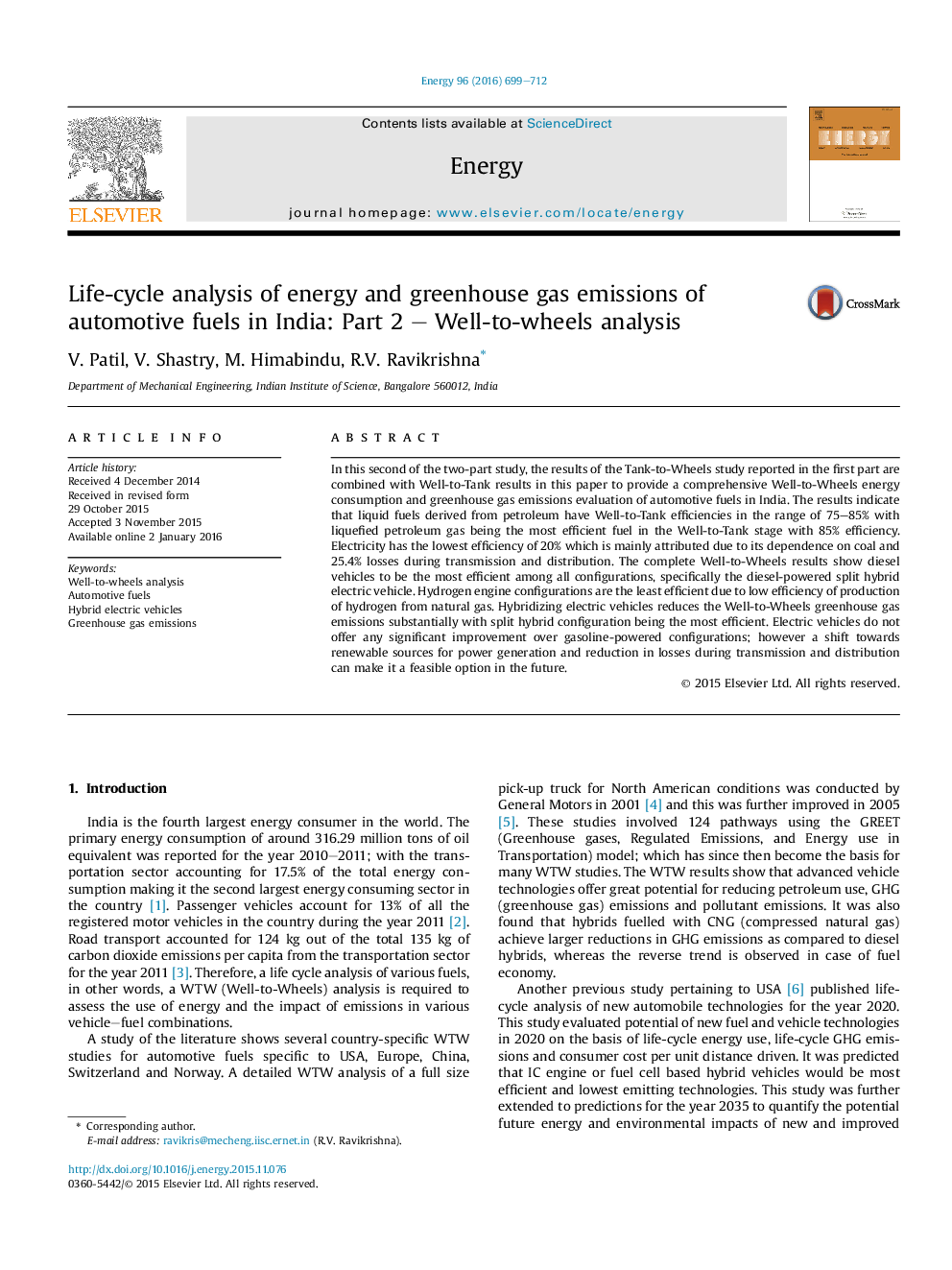| کد مقاله | کد نشریه | سال انتشار | مقاله انگلیسی | نسخه تمام متن |
|---|---|---|---|---|
| 1731305 | 1521452 | 2016 | 14 صفحه PDF | دانلود رایگان |
عنوان انگلیسی مقاله ISI
Life-cycle analysis of energy and greenhouse gas emissions of automotive fuels in India: Part 2 - Well-to-wheels analysis
ترجمه فارسی عنوان
تجزیه و تحلیل چرخه حیات انرژی و انتشار گازهای گلخانه ای سوخت های اتومبیل در هند: قسمت 2 - تجزیه و تحلیل به خوبی به چرخ
دانلود مقاله + سفارش ترجمه
دانلود مقاله ISI انگلیسی
رایگان برای ایرانیان
کلمات کلیدی
تجزیه و تحلیل به خوبی به چرخ، سوخت های خودرو، وسایل نقلیه هیبریدی، انتشار گازهای گلخانه ای،
موضوعات مرتبط
مهندسی و علوم پایه
مهندسی انرژی
انرژی (عمومی)
چکیده انگلیسی
In this second of the two-part study, the results of the Tank-to-Wheels study reported in the first part are combined with Well-to-Tank results in this paper to provide a comprehensive Well-to-Wheels energy consumption and greenhouse gas emissions evaluation of automotive fuels in India. The results indicate that liquid fuels derived from petroleum have Well-to-Tank efficiencies in the range of 75-85% with liquefied petroleum gas being the most efficient fuel in the Well-to-Tank stage with 85% efficiency. Electricity has the lowest efficiency of 20% which is mainly attributed due to its dependence on coal and 25.4% losses during transmission and distribution. The complete Well-to-Wheels results show diesel vehicles to be the most efficient among all configurations, specifically the diesel-powered split hybrid electric vehicle. Hydrogen engine configurations are the least efficient due to low efficiency of production of hydrogen from natural gas. Hybridizing electric vehicles reduces the Well-to-Wheels greenhouse gas emissions substantially with split hybrid configuration being the most efficient. Electric vehicles do not offer any significant improvement over gasoline-powered configurations; however a shift towards renewable sources for power generation and reduction in losses during transmission and distribution can make it a feasible option in the future.
ناشر
Database: Elsevier - ScienceDirect (ساینس دایرکت)
Journal: Energy - Volume 96, 1 February 2016, Pages 699-712
Journal: Energy - Volume 96, 1 February 2016, Pages 699-712
نویسندگان
V. Patil, V. Shastry, M. Himabindu, R.V. Ravikrishna,
